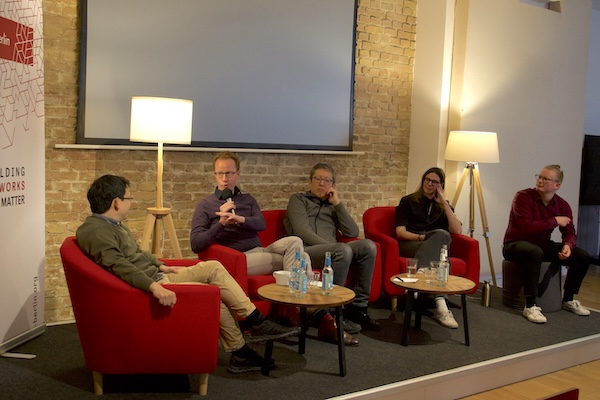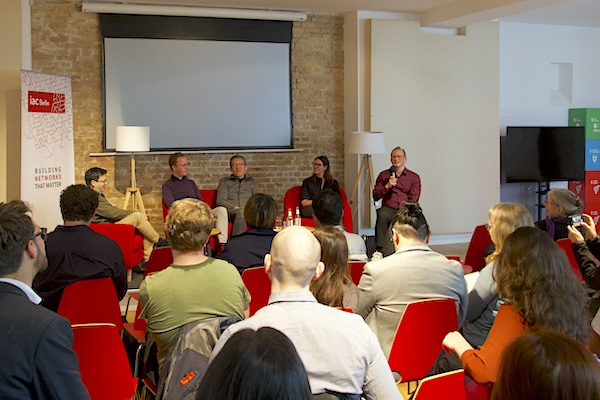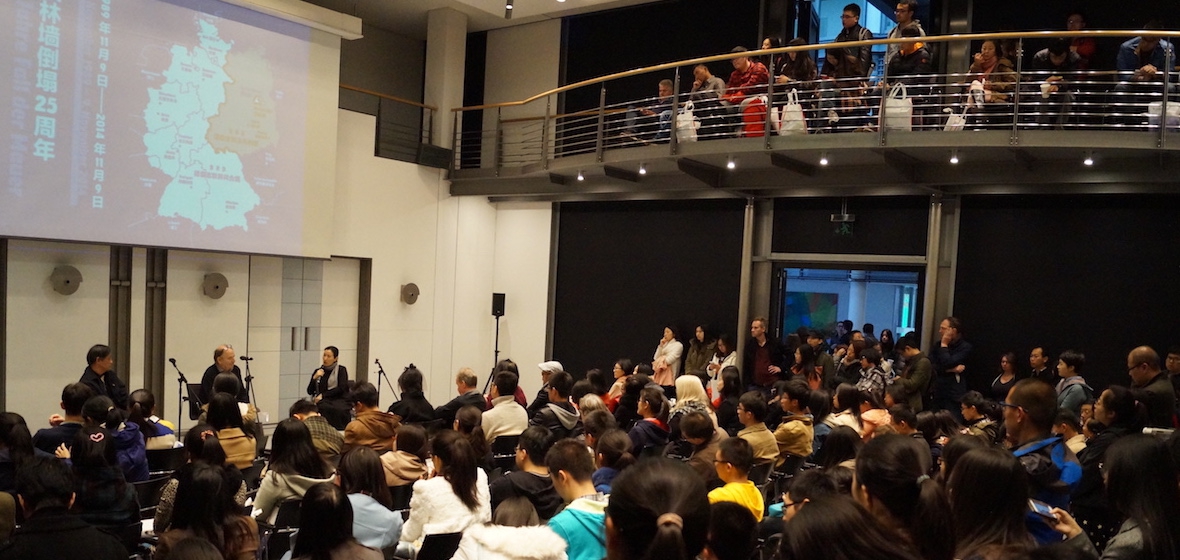Rückblick:
Germany's new political and journalistic perspectives on China

Guests:
Felix LEE, chairman of the German-Chinese Media Network, editor at SZ Dossier Geoökonomie, former correspondent for taz and other German media in China
Amelie RICHTER, editor-in-chief at China.Table, based in Paris, focusing on EU-China relations
Steffen WURZEL, editor at Deutschlandfunk and former ARD radio correspondent in Shanghai
Yuli LIN, freelance journalist in Berlin, former Germany correspondent for the Taiwanese Central News Agency
Xifan YANG, editor for Die Zeit, former Zeit correspondent in China
Moderator:
Leonardo PAPE, freelance journalist for China.Table and other media
On 16 May 2025 the German-Chinese Media Network, in cooperation with China.Table, presented the panel discussion ‘Germany's new political and journalistic perspectives on China’ at the International Alumni Center in Berlin. It focused on Germany's China policy under the new government and the prospects for the China reporting of German media.
According to Felix Lee, a clear course of German China policy hasn’t emerged yet after the last federal elections . Chancellor Friedrich Merz remains very much oriented towards Europe and the US in his foreign political thinking. Overall, Felix Lee does see progress in the German strategic discourse on China recently and for the first time a broad platform to coordinate German China policy.
Yuli Lin doesn’t foresee major changes in Germany’s dealings with Taiwan under the new government. However, in his view political exchange could become more intensive, with a possible German ministerial visit to Taiwan. In German media coverage he hopes to see more Taiwan-related stories which do not center the China threat, emphasizing that Taiwan can be seen on its own terms.
Steffen Wurzel sees the German China strategy as necessarily disparate, as it tries to unite diverse economic and political stakeholders with different interests. In his eyes, the ascription of China as a partner, competitor, and systemic rival fulfills the function of tying stakeholders together while leaving much room for strategic maneuvering.
On German China reporting, Wurzel reflected on the tension between correspondents abroad and the headquarters in Germany. He finds that similar tensions between people working in the field and their headquarters exist in other professions. It should not be seen as purely negative, as this interaction also puts checks and balances on each other’s perspectives.
Amelie Richter shared her perspective as a journalist focusing on China-EU relations. According to her, it is still remainst to be seen if the new German government will emphasise a more coordinated European approach towards China. Merz’ advisor Michael Clauß, former German EU ambassador and also German ambassador to China between 2013 and 2018, could play a key role. However, Richter thinks that decision-finding on China at EU level will still be messy in many instances.
Reflecting on German China discourse, she and Felix Lee both note a stark rhetorical difference between economic centers of interaction with China, such as in Richter's native Bavaria or the Stuttgart region, and the more China-critical discussions in Berlin.
Text: Leonardo Pape
Photos: Haifen Nan
